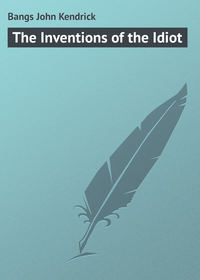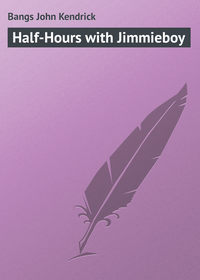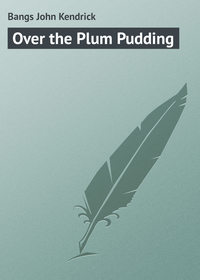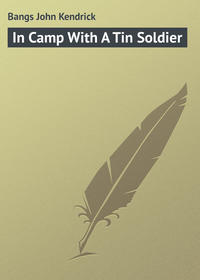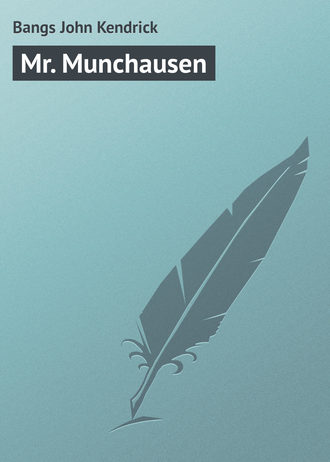 полная версия
полная версияMr. Munchausen
“What did you do for hazards?” asked Ananias.
“Oh we had ’em by the dozen,” replied Mr. Munchausen. “There weren’t any ponds or stone walls, of course, but there were plenty of others that were quite as interesting. There was the Sphynx for instance; and for bunkers the pyramids can’t be beaten. Then occasionally right in the middle of a game a caravan ten or twelve miles long, would begin to drag its interminable length across the middle of the course, and it takes mighty nice work with the lofting iron to lift a ball over a caravan without hitting a camel or killing an Arab, I can tell you. Then finally I’m sure I don’t know of any more hazardous hazard for a golf player – or for anybody else for that matter – than a real hungry African lion out in search of breakfast, especially when you meet him on the hole furthest from home and have a stretch of three or four miles between him and assistance with no revolver or other weapon at hand. That’s hazard enough for me and it took the best work I could do with my brassey to get around it.”
“You always were strong at a brassey lie,” said Ananias.
“Thank you,” said Mr. Munchausen. “There are few lies I can’t get around. But on this morning I was playing for the Mid-African Championship. I’d been getting along splendidly. My record for fifteen holes was about seven hundred and eighty-three strokes, and I was flattering myself that I was about to turn in the best card that had ever been seen in a medal play contest in all Africa. My drive from the sixteenth tee was a simple beauty. I thought the ball would never stop, I hit it such a tremendous whack. It had a flight of three hundred and eighty-two yards and a roll of one hundred and twenty more, and when it finally stopped it turned up in a mighty good lie on a natural tee, which the wind had swirled up. Calling to the monkey who acted as my caddy – we used monkeys for caddies always in Africa, and they were a great success because they don’t talk and they use their tails as a sort of extra hand, – I got out my brassey for the second stroke, took my stance on the hardened sand, swung my club back, fixed my eye on the ball and was just about to carry through, when I heard a sound which sent my heart into my boots, my caddy galloping back to the club house, and set my teeth chattering like a pair of castanets. It was unmistakable, that sound. When a hungry lion roars you know precisely what it is the moment you hear it, especially if you have heard it before. It doesn’t sound a bit like the miauing of a cat; nor is it suggestive of the rumble of artillery in an adjacent street. There is no mistaking it for distant thunder, as some writers would have you believe. It has none of the gently mournful quality that characterises the soughing of the wind through the leafless branches of the autumnal forest, to which a poet might liken it; it is just a plain lion-roaring and nothing else, and when you hear it you know it. The man who mistakes it for distant thunder might just as well be struck by lightning there and then for all the chance he has to get away from it ultimately. The poet who confounds it with the gentle soughing breeze never lives to tell about it. He gets himself eaten up for his foolishness. It doesn’t require a Daniel come to judgment to recognise a lion’s roar on sight.
“I should have perished myself that morning if I had not known on the instant just what were the causes of the disturbance. My nerve did not desert me, however, frightened as I was. I stopped my play and looked out over the sand in the direction whence the roaring came, and there he stood a perfect picture of majesty, and a giant among lions, eyeing me critically as much as to say, ‘Well this is luck, here’s breakfast fit for a king!’ but he reckoned without his host. I was in no mood to be served up to stop his ravening appetite and I made up my mind at once to stay and fight. I’m a good runner, Ananias, but I cannot beat a lion in a three mile sprint on a sandy soil, so fight it was. The question was how. My caddy gone, the only weapons I had with me were my brassey and that one little gutta percha ball, but thanks to my golf they were sufficient.
“Carefully calculating the distance at which the huge beast stood, I addressed the ball with unusual care, aiming slightly to the left to overcome my tendency to slice, and drove the ball straight through the lion’s heart as he poised himself on his hind legs ready to spring upon me. It was a superb stroke and not an instant too soon, for just as the ball struck him he sprang forward, and even as it was landed but two feet away from where I stood, but, I am happy to say, dead.
“It was indeed a narrow escape, and it tried my nerves to the full, but I extracted the ball and resumed my play in a short while, adding the lucky stroke to my score meanwhile. But I lost the match, – not because I lost my nerve, for this I did not do, but because I lifted from the lion’s heart. The committee disqualified me because I did not play from my lie and the cup went to my competitor. However, I was satisfied to have escaped with my life. I’d rather be a live runner-up than a dead champion any day.”
“A wonderful experience,” said Ananias. “Perfectly wonderful. I never heard of a stroke to equal that.”
“You are too modest, Ananias,” said Mr. Munchausen drily. “Too modest by half. You and Sapphira hold the record for that, you know.”
“I have forgotten the episode,” said Ananias.
“Didn’t you and she make your last hole on a single stroke?” demanded Munchausen with an inward chuckle.
“Oh – yes,” said Ananias grimly, as he recalled the incident. “But you know we didn’t win any more than you did.”
“Oh, didn’t you?” asked Munchausen.
“No,” replied Ananias. “You forget that Sapphira and I were two down at the finish.”
And Mr. Munchausen played the rest of the game in silence. Ananias had at last got the best of him.





